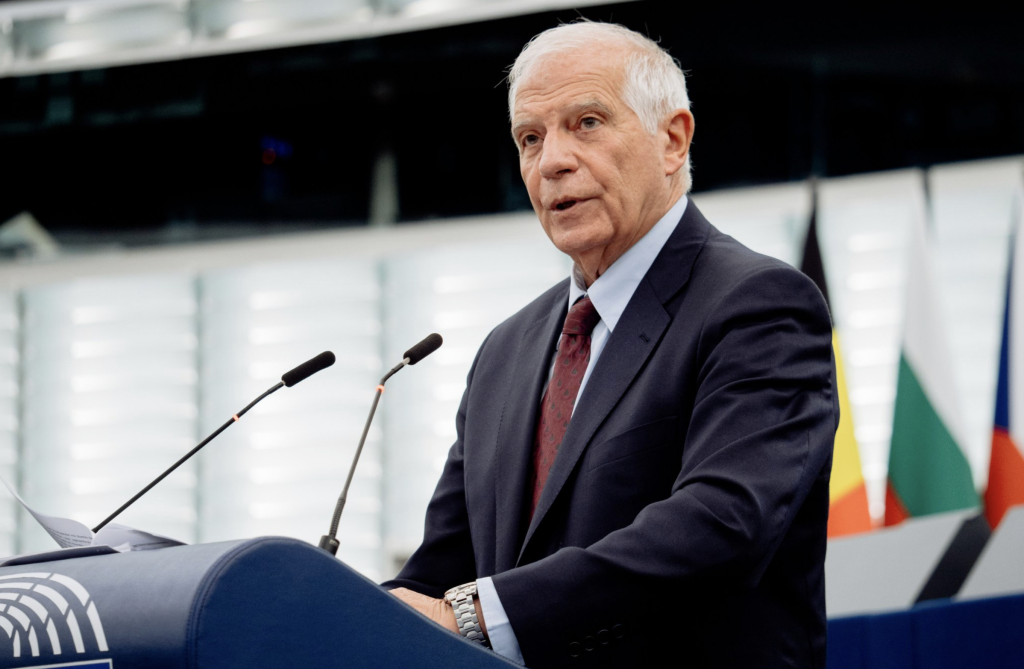GONZALO SARASQUETA
TYPE TATO BORES AND ENJOY THE FUTURE

Javier Milei has already announced that he will privatize YPF, TV Pública, Enarsa, Radio Nacional and Télam. Aerolíneas Argentinas, which would remain in the hands of the workers, is also on the table. The mantra “reform of the State” is bounced back with force. Only the reciters change: out go Carlos Menem, Roberto Dromi and Peronism, in come the Milei brothers, Victoria Villaruel and the libertarians. Once again, the condemnation of the last military dictatorship has its “buts”. And to close the déjà vu, the transition between two governments of different nature mutates -once again- into accusations, stirrings and suspense.
Nobody doubts it: Argentina is a strange country. To paraphrase the Catalan writer Manuel Vázquez Montalbán, it has history behind and in front of it. It is surrounded by the past. We do not usually have problems for the first time. Let’s review: inflation, fiscal deficit, dollar shortage, corruption and insecurity, to name a few. Perhaps the only unprecedented conflict, in tune with the region, is the spread of drug trafficking. Nothing else.
We repeat mistakes, prejudices, slogans and, what hurts the most, and at the same time what we are most proud of, the attachment to the absolute. We live for all or nothing, whether it is a World Cup, a Taylor Swift concert, a MasterChef or, as this year, a presidential election that we decode as if it were the final judgment. Taking advantage of the approaching anniversary of winning the third World Cup, we could say that we live in “Kolo Muani mode”.
And democracy finds it hard to commune with unbridled passion. Generally, the best functioning open systems in the world are gray, predictable, inert. Yes, democracy is boring. In it, those in front are adversaries (not enemies), the ordinary citizen does not know the price of the dollar, journalists have to work their backsides off to find the news, and December is only the last month of the year.
Besides, we believe that we are a news factory. And this year is no exception. We are convinced that, with the arrival of Javier Milei to the Casa Rosada, we bring another innovation to the world. But let us remember that the libertarian is the latest in the ultra-right saga. Viktor Orbán came to power in Hungary in 2010; after him, Rodrigo Duterte, Donald Trump, Mateusz Morawiecki, Jair Bolsonaro, Giorgia Meloni appeared. In short, nothing new under the sun. In fact, we could talk about the Argentine delay.
The reality is that, if we adjust the zoom and change the conjunctural dimension for the structural dimension, Argentina is reiterating its historical socio-political conflict. We are witnessing yet another season of the “hegemonic stalemate” that Juan Carlos Portantiero already spoke of in 1973. What did this mean in Spanish? That the soul of Argentina is disputed by two economic-cultural blocs, which have enough strength and resources to veto each other’s project, but not to impose their own.
The nomenclature has varied over time: unitarios vs federales, particularism vs universalism, rationality vs vitality, Peronism vs anti-Peronism, institutionalism vs street, Kirchnerism vs anti-Kirchnerism. As political scientist Andrés Malamud says: “The only thing that 100% of Argentines agree on is that 50% of the population is wrong”.
Javier Milei comes to prolong this mechanics. After the era of statism, now the pendulum swings back to the market. The linguistic repertoire? Privatizations, freedom, fiscal balance, meritocracy and sacrifice. As masterfully explained by the wit of Tato Bores: “The national motto has always been “fuck today to enjoy tomorrow” and one puts one’s shoulder to the wheel, but the future by definition is a pianta and one can never reach it”.
In front of Milei, a kirchnerism staked to its supposed “won decade” is waiting for him. The movement led by Cristina Fernández is more focused on defending the asbestos narrative it has built all these years than on creating solutions for this post-pandemic world. Don’t even talk to it about platform capitalism or energy transition. The theoretical framework remains untouched. Magnetto continues to be Voldemort; the United States, “the counter-empire”; “Macri, the dictatorship”; and insecurity, a fiction of the most cavernous right wing.
Another remake begins. There are nuances in the aesthetics, in the cast, in the communicational and in the political instruments, for sure, but everything points to the public debate returning to the pigeonhole of Menemism. Old issues, new faces; although not so much, there is Guillermo Francos, who, together with Domingo Cavallo (another surname that returns), founded Acción por la República. Everything comes back in Argentina, the country where nobody becomes a Chinese vase.
Tip: turn on Youtube, type in Tato Bores and enjoy the future.
Gonzalo Sarasqueta is professor and director of the Master in Political and Business Communication at Camilo José Cela University.
This article was originally published in the newspaper La Nación, Argentina.



